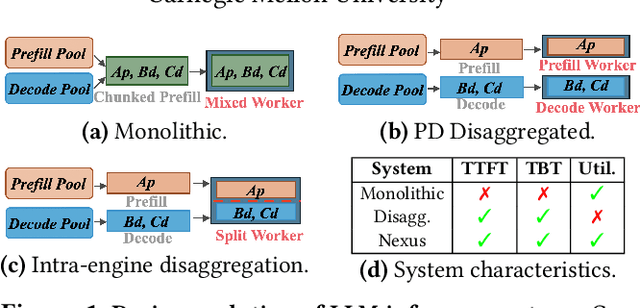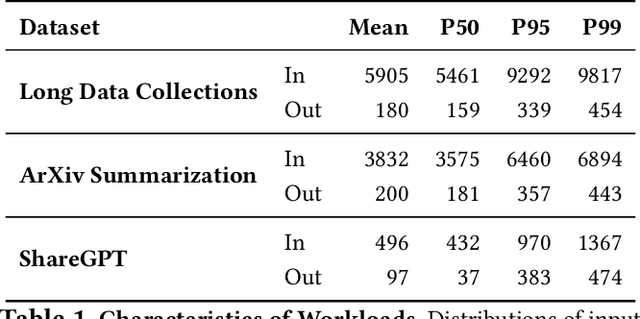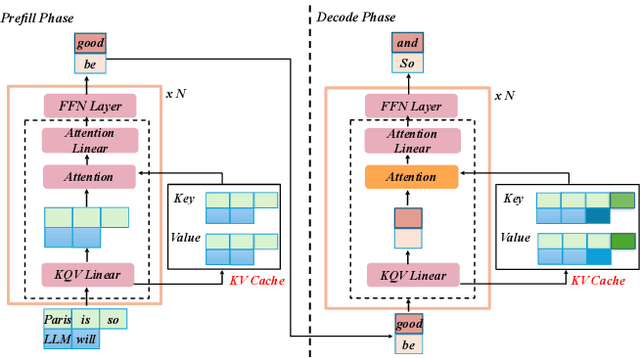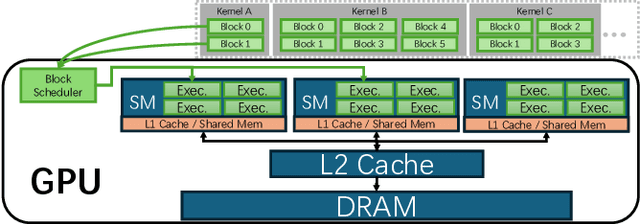Colin Cai
Nexus: Taming Throughput-Latency Tradeoff in LLM Serving via Efficient GPU Sharing
Jul 09, 2025



Abstract:Current prefill-decode (PD) disaggregation is typically deployed at the level of entire serving engines, assigning separate GPUs to handle prefill and decode phases. While effective at reducing latency, this approach demands more hardware. To improve GPU utilization, Chunked Prefill mixes prefill and decode requests within the same batch, but introduces phase interference between prefill and decode. While existing PD disaggregation solutions separate the phases across GPUs, we ask: can the same decoupling be achieved within a single serving engine? The key challenge lies in managing the conflicting resource requirements of prefill and decode when they share the same hardware. In this paper, we first show that chunked prefill requests cause interference with decode requests due to their distinct requirements for GPU resources. Second, we find that GPU resources exhibit diminishing returns. Beyond a saturation point, increasing GPU allocation yields negligible latency improvements. This insight enables us to split a single GPU's resources and dynamically allocate them to prefill and decode on the fly, effectively disaggregating the two phases within the same GPU. Across a range of models and workloads, our system Nexus achieves up to 2.2x higher throughput, 20x lower TTFT, and 2.5x lower TBT than vLLM. It also outperforms SGLang with up to 2x higher throughput, 2x lower TTFT, and 1.7x lower TBT, and achieves 1.4x higher throughput than vLLM-disaggregation using only half the number of GPUs.
Autellix: An Efficient Serving Engine for LLM Agents as General Programs
Feb 19, 2025Abstract:Large language model (LLM) applications are evolving beyond simple chatbots into dynamic, general-purpose agentic programs, which scale LLM calls and output tokens to help AI agents reason, explore, and solve complex tasks. However, existing LLM serving systems ignore dependencies between programs and calls, missing significant opportunities for optimization. Our analysis reveals that programs submitted to LLM serving engines experience long cumulative wait times, primarily due to head-of-line blocking at both the individual LLM request and the program. To address this, we introduce Autellix, an LLM serving system that treats programs as first-class citizens to minimize their end-to-end latencies. Autellix intercepts LLM calls submitted by programs, enriching schedulers with program-level context. We propose two scheduling algorithms-for single-threaded and distributed programs-that preempt and prioritize LLM calls based on their programs' previously completed calls. Our evaluation demonstrates that across diverse LLMs and agentic workloads, Autellix improves throughput of programs by 4-15x at the same latency compared to state-of-the-art systems, such as vLLM.
 Add to Chrome
Add to Chrome Add to Firefox
Add to Firefox Add to Edge
Add to Edge